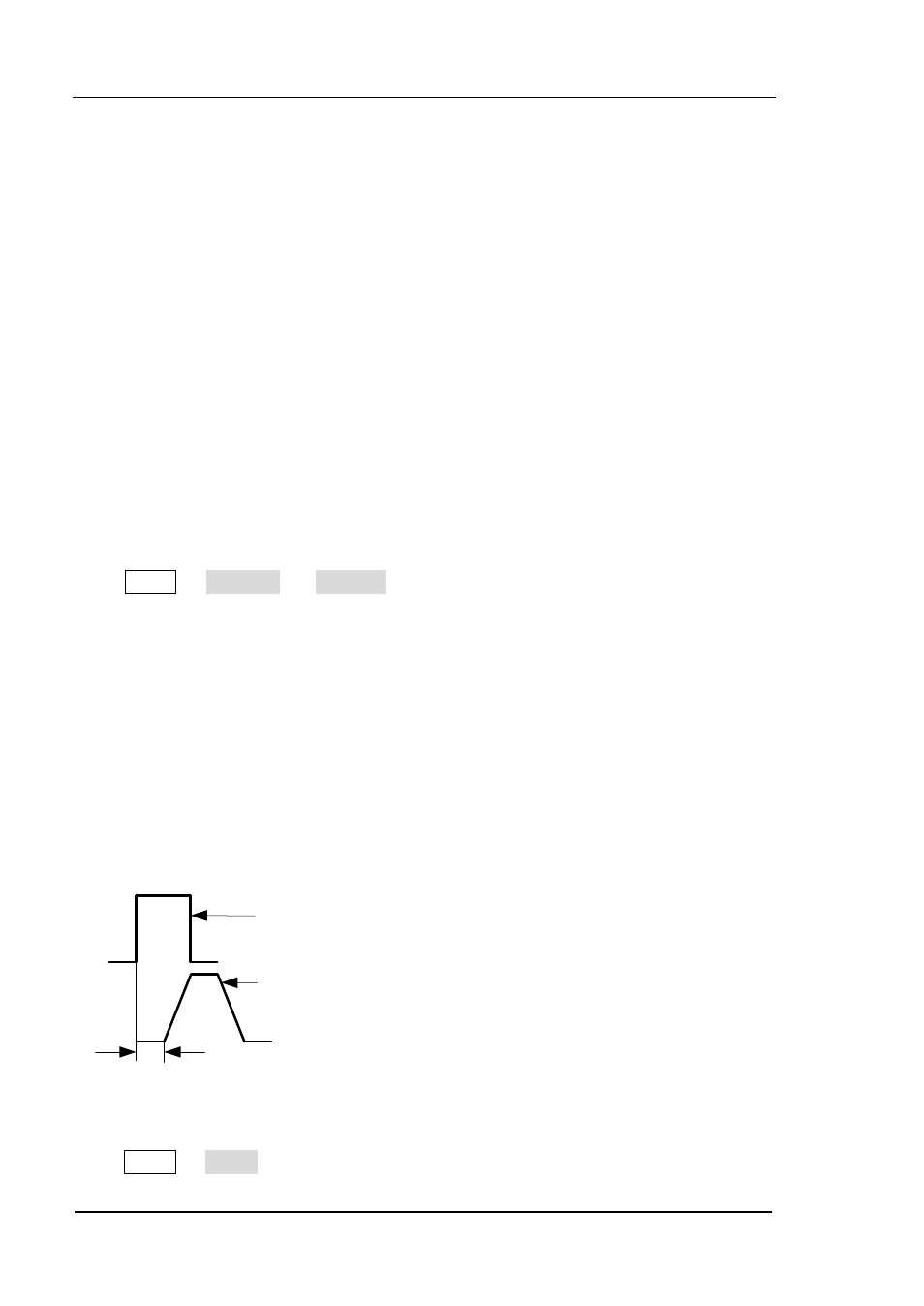Leading/trailing edge, Delay – RIGOL DG5000 Series User Manual
Page 56

RIGOL
Chapter 2 Basic Waveform Output
User’s Guide for DG5000
2-8
other one will be automatically changed. Press the softkey again to switch to
“Duty Cycle” (having been automatically set to 20% in this example, refer to “Set
the Duty Cycle” for manual setting). Pulse Duty Cycle is limited by the
“Minimum Pulse Width” and the “Pulse Period”.
Pulse Duty Cycle ≥ 100 × Minimum Pulse Width ÷ Pulse Period
Pulse Duty Cycle ≤ 100 Ч (1 - 2 Ч Minimum Pulse Width ÷ Pulse Period)
Selectable Pulse Width units: sec, msec, μsec, nsec.
You can also use the knob to modify this parameter.
Leading/Trailing Edge
The Leading (rising) edge time is defined as the duration of the pulse amplitude rising
from 10% to 90% threshold, while the Trailing (falling) edge time is defined as the
duration of the pulse amplitude moving down from 90% to 10% threshold.
Press Pulse Leading (or Trailing ) to highlight the softkey, and then use the
numeric keyboard to input “50” and select the unit “nsec” in the pop-up menu.
Edge Time range: 2.5 ns to 1 ms.
Selectable Leading/Trailing Edge Time units: sec, msec, μsec, nsec.
You can also use the knob to modify this parameter.
Delay
Delay is defined as the delayed time of the output of a channel relative to the output
of the other channel. Note that the delay function is only for dual-channel models.
Delay
CH1 Output
CH2 Output
Press Pulse Delay to highlight the softkey, and then use the numeric keyboard to
